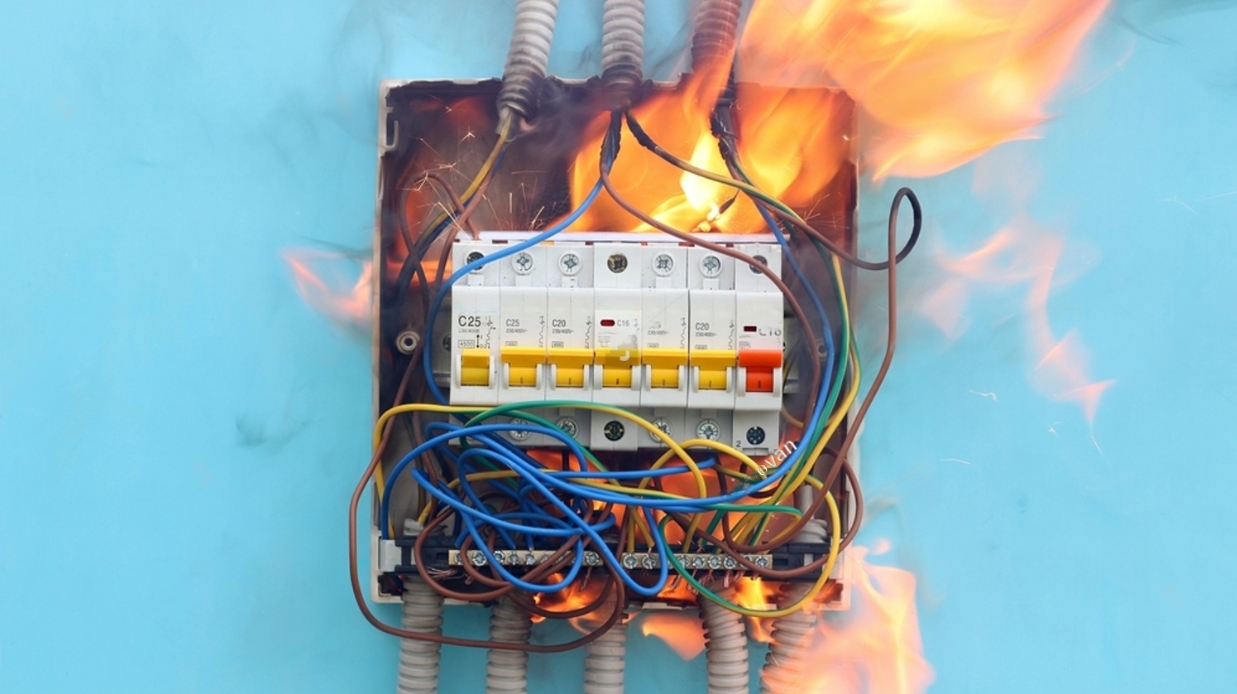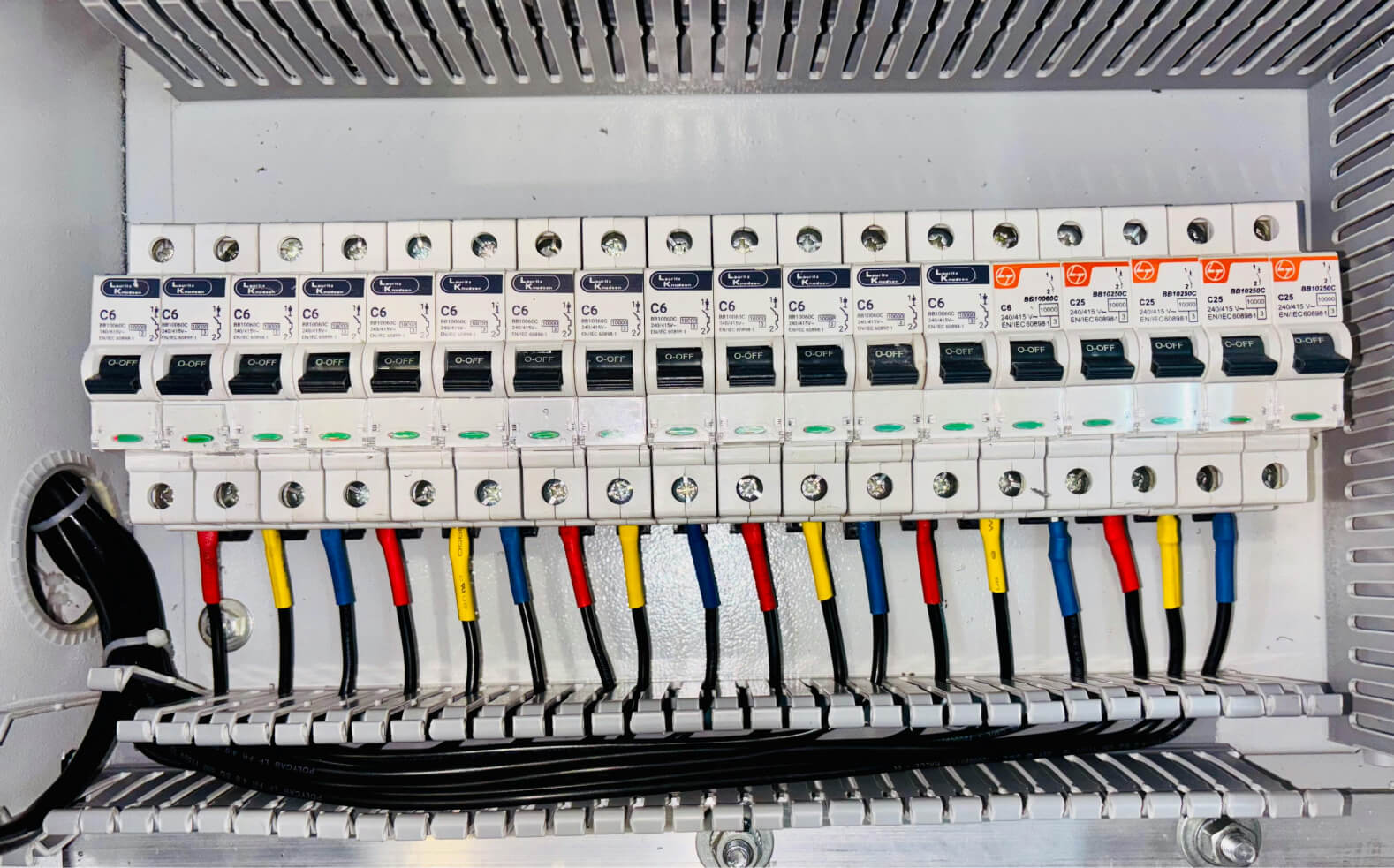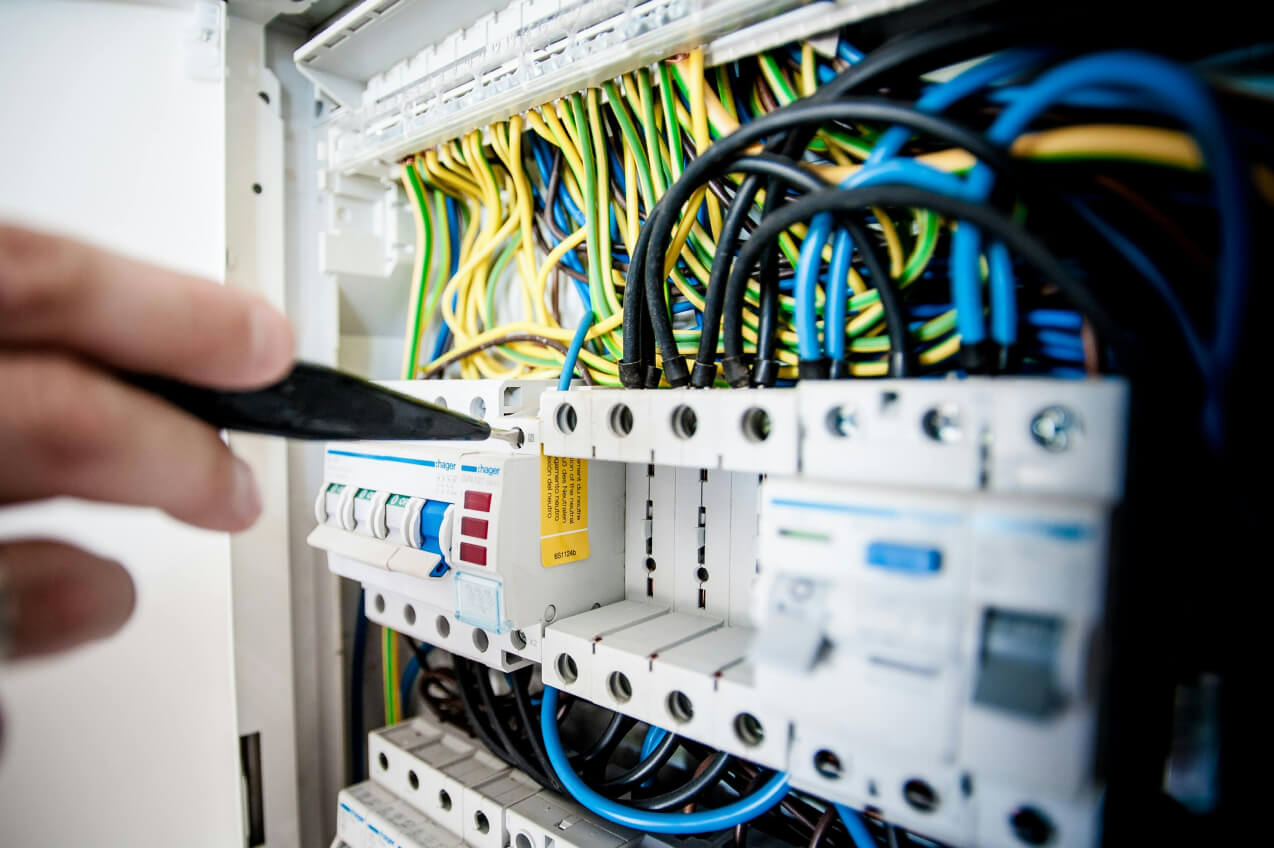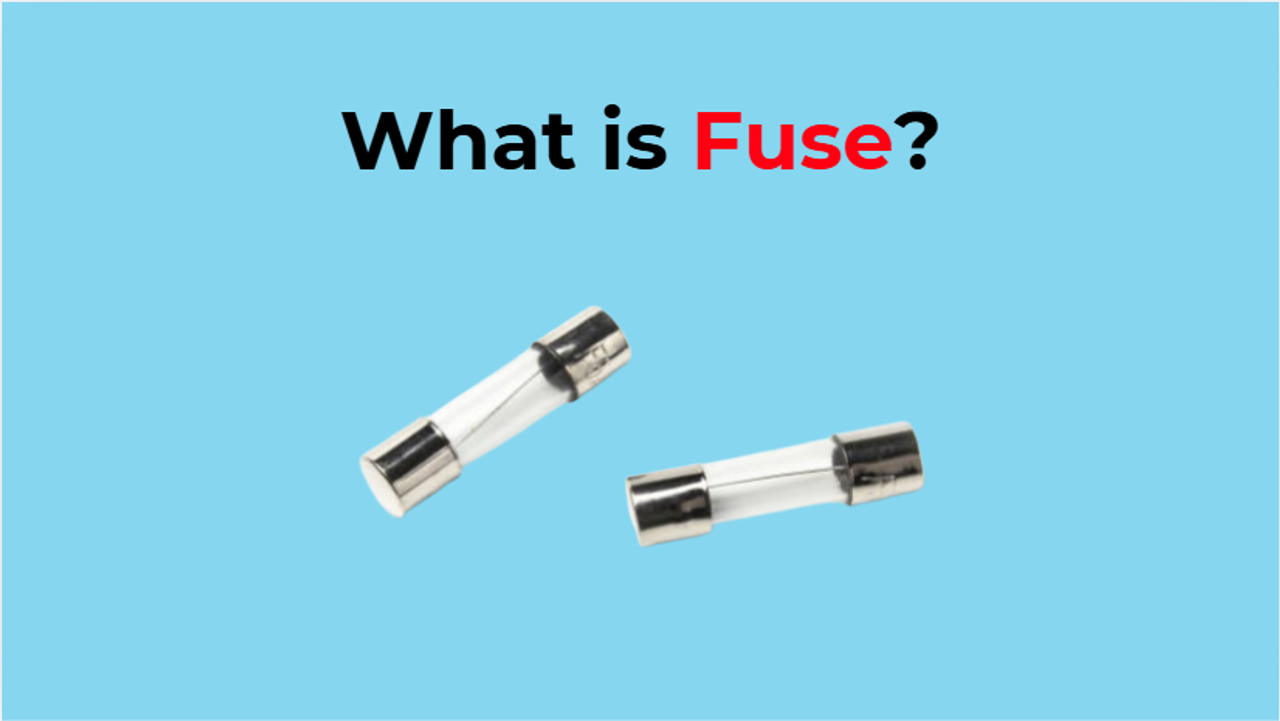What is an Electric Fuse and Why Does it Matter?
If you're new to electrical systems and want to know more about your home/office's circuit systems, fuses are a great place to start.
For starters, electric fuses are designed to protect your electric appliances from excessive current. It's incredible how these tiny devices play such a critical role in your home's electrical systems.
Want to know more about what an electric fuse is and why it matters? Let's get in. I will also list down a few tips to help you pick the right-sized fuse and how to avoid oversized and undersized fuses.
Why do electric fuses matter?
You must have heard about an electric fuse or seen one and wondered "What are fuses for?". Here's your answer. Electric fuses are used to protect appliances from damage and safeguard homes, offices, or wherever an electrical circuit is used from fire hazards.
1. Prevent damage to electrical devices
Whenever an appliance experiences more current or heat than it can handle, it can get damaged. Repairing or replacing electric devices can be expensive and sometimes a hassle to set them up all over again. That's what a fuse will save you from.
2. Prevents against fires
Abnormal energy flows require a prompt response. Too much current can cause the wiring to overheat and catch fire. And in a lot of cases that fire spreads through combustible materials like curtains, carpets, etc resulting in a catastrophe.
The above scenario is when there is no fuse. In the presence of one, this can be avoided as the electric fuse breaks the circuit as soon as it experiences a high current or overheating, preventing further energy flow. Hence, protecting you and your place against extremely damaging fire incidents.

What is an electric fuse?
An electric fuse is a device that interrupts the flow of electric current when it exceeds a safe level. To understand how a fuse protects devices, let's first see its components.

The key components of a fuse are:
- A low-resistance metallic wire.
- A casing made of non-combustible material such as porcelain.
- A pair of electric terminals for connecting the wire and the circuit. The wire is set up between the two electric terminals and enclosed by a casing.
Now, let's look at how an electric fuse works.
The sensitive wire inside the fuse casing has a low melting point. In the event of overcurrent, the wire melts and separates into two pieces creating a gap in the circuit which stops the current flow.
What are the various types of fuses?
There are different types of fuses each serving a different purpose. Let's discuss the most common types to see which one you need.
Cartridge fuses
Cartridge fuses are used in appliances where high voltage rating is required such as air conditioners, motors, refrigerators, etc. They are available in the market for up to 600 volts AC and 600 amps. Cartridge fuses are used in commercial setups and also in home distribution panels.
Blade fuses
Blade fuses, also known as automotive fuses, are widely used in vehicles to protect against short circuits and damage to wiring. This kind of fuse has a plastic body with a pair of metal caps so they can be plugged into a socket. This makes them easy to replace.

Resettable fuses
The resettable fuses are reusable and can be used multiple times without replacement, so they are used where it's difficult or nearly impossible to replace a melted fuse. For instance in an aerospace or a nuclear system.
When a resettable fuse senses excessive current, its internal wire goes out of alignment to open the circuit rather than melting. Then, after some time, it closes the circuit for normal operation.
Thermal fuses
A thermal fuse, unlike a resettable fuse, can only be used only one time. It uses a temperature-sensitive alloy that breaks the circuit when it senses overheating from excessive current flow.
What is a circuit breaker?
Like traditional fuses, circuit breakers also break the flow of electricity when there's excessive current to prevent devices from being damaged and homes and offices against electric fires.
A circuit breaker does the same thing to prevent overcurrent as the fuse. It breaks the circuit to stop current flow.
If you want to dig a little deeper, here's a breakdown of its working. The key components are:
- Switch: It is like the on and off button for your system.
- Contacts: They're metal components that catch or release the flow of electricity. When contacts are closed, the current continues to run through the circuit breaker but when they separate, the flow of current stops.
- Arc extinguisher: When the circuit breaker trips, a spark can be created. That's when this component extinguishes it to prevent fires.
Now that you know the key components of a circuit breaker, let's see how they work together. A circuit breaker uses the trip mechanism to sense overcurrent and trigger the switch to cut off the power. As the breaker trips, contacts split up to prevent current flow.

Circuit breakers are a great alternative to fuses, as they are resettable. In case of excessive energy flow, the breaker would trip to stop the current but then power can be restored within a few minutes without replacing anything.
What is the difference between circuit breakers and electric fuses?
Circuit breakers and electric fuses both have their pros and cons. Let's compare them to see which component fits better for which application.
Resettable vs. replaceable
Circuit breakers are resettable meaning they don't need to be replaced after tripping due to overcurrent. You just need to reset them and power will be back on. However, traditional fuses need to be replaced. So, when a fuse melts to protect a circuit, power won't be restored until you replace the one that just melted.
Speed of operation
Here, the fuse has an advantage over the circuit breaker as it has a faster response time. A fuse responds to abnormal current in 0.002 seconds while a circuit breaker can take anywhere between 0.02 and 0.05 seconds.
Cost
Compared to a fuse, a circuit breaker has a higher upfront cost and is more expensive to set up. However, fuses need to be replaced more frequently, so you'll be buying more of them than a circuit breaker.
Application
Generally, fuses and circuit breakers are used for different purposes. While a fuse is used in individual devices a circuit breaker protects the entire home/office's wiring against overcurrent.
Where should fuses be placed?
Fuses are used in numerous electrical systems such as industrial machinery, circuit panels, and home appliances like refrigerators and electric kettles. Here are a few electrical systems where you'll see fuses being used.
1. Fuse box
A fuse box is a metal box containing numerous fuses. It usually has cartridges and screw-in fuses that can be anywhere between six to twelve fuses.
2. Fuse panels in cars
Fuses are also used in fuse panels in cars.
Usually, there are two fuse panels in a car, one under the hood and the other near the steering wheel or in the dashboard.
The fuse under the hood prevents components like battery and cooling fans from being damaged while the other fuse box is used to protect radio, lights, etc.
3. Industrial machinery
Heavy industrial machinery needs protection too, especially when they are so expensive. In these heavy machines, industrial-grade fuses are used that are different from the ones used in home appliances.
How do I choose the right fuse size?
Since a fuse is a safety device, it's important to choose the right one for protection against hazards. Here are a few tips to help you pick the correct fuse size.
1. Identify the maximum and minimum fuse ratings
You will need to calculate the minimum and maximum fuse ratings and then buy one that falls between the calculated numbers. To calculate the maximum fuse rating, use
Amps = power (watts) / voltage (volts)
So, if I have a 30-watt light bulb connected to 60V voltage, the amperage would be 0.5A (30 / 60).
Now to calculate the minimum rating, multiply the total by 125%. Mine came out to 0.625A.
2. Do not undersize or oversize your fuse
Oversizing the fuse can release significant heat causing damage to appliances and wiring and posing a fire risk. While oversizing can be dangerous, under-sizing a fuse makes it blow even if the current isn't high enough. This will only add to the inconvenience of frequently replacing fuses.
3. Time-current characteristics
This characteristic of a fuse decides whether it will break the circuit quickly or slowly, for instance, a fast-acting fuse breaks quickly. It's used in appliances that can't handle even a brief surge. On the flip side, time-delay fuses open after a slight delay. So, they're used in appliances that can withstand overcurrent for a short period.
When choosing an electric fuse, consider which kind will suit your device. Research if it can handle excessive energy for a short time then pick one accordingly.
- Equipped with both the thermal and magnetic tripping mechanism for reliability and safety.
- Designed for reversible connection and can work under bidirectional current.
Frequently asked questions about electric fuses
Is a fuse and a breaker the same thing?
No, a fuse and a circuit breaker are not the same thing. However, both devices serve the same purpose, which is to break the circuit in the event of overcurrent, but do it differently.
A fuse has a low-resistance wire that melts and breaks the circuit when it experiences excessive current. On the other hand, a circuit breaker trips when high energy flows through it, cutting off power. A circuit can be reset while the fuse must be replaced.
What happens if a fuse fails?
If a fuse fails or blows, the circuit it's located in will break. Once the circuit breaks, the current stops flowing through it, whatever device it's fitted in, eventually losing power. For the device to start working again, you'll have to replace the blown fuse.
How long do fuses last in a home?
In a home, a fuse can last up to 40 years or more if it's never blown. Most fuses are one-shot devices. If there's an overcurrent event, they will only last one event.
Conclusion
Understanding how an electric fuse works is crucial for making the right choices when you need to buy one. Also, understanding electric fuses lets you know more about how electrical systems work in homes and what you should and shouldn't do to ensure safety and system longevity.
Fuses protect electrical devices by stopping current flow when they sense more energy than the device can handle. This tiny component can save you from spending thousands of dollars on repairing or replacing your appliances. Also, they can prevent electric fires keeping you and your family safe.











